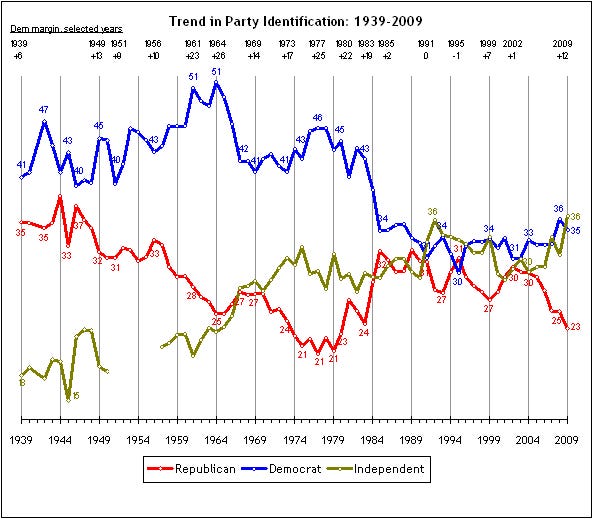Something Very Unusual Happened in This Year’s Election: There Were More Republicans Than Democrats in the Electorate
For the first time in modern history, there were more Republicans than Democrats in the electorate after the 2024 election, a trend that has significant implications for the future of American politics.
According to the AP VoteCast survey, Republicans outnumbered Democrats by 5 points, while the network exit polls reported a 4-point advantage for Republicans. This is a historic anomaly, as Democrats have typically held a significant advantage in party identification since the New Deal era.
Historically, the Democratic advantage in party identification has been so strong that even Republicans like Richard Nixon won landslides in 1972, only to still lose Congress to a Democratic majority. However, the 2024 election marked a decisive breakthrough for Republicans, with the party winning its fair share of national elections, including a trifecta in 2024.
The trend towards a more even party identification split is likely a permanent shift, rather than a short-term anomaly. As voters become increasingly polarized, it is expected that party ID will become more evenly split, with a narrow Republican advantage.
The key to understanding this shift lies in the 2020 presidential election, where Democrats won a trifecta, despite a tie in party ID between Democrats and Republicans. Voter registration data also shows a significant surge in Republicans registering under the Trump administration, particularly in 2020, reflecting a long-term unwinding of the Democrats’ New Deal advantage in partisan identification and registration.
The era of parity in party ID signals that the future of American politics will be characterized by closely contested elections and a 50-50 political environment, where good years for one party will lead to a slight advantage in party ID and vice versa. This new reality presents a significant challenge for pollsters, who will need to take heavy-handed measures to achieve a realistic party ID mix in their polls.
Ultimately, the future of American politics will be shaped by the increasingly competitive nature of elections, with a slight Republican advantage in party ID. As pollsters and political analysts, we must adapt to this new reality and develop new methods to accurately predict party ID and election outcomes.

